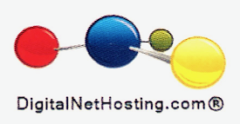Is Cloud Computing Right For You?
Wherever you look today, you see the CLOUD. Well! It’s the CLOUD COMPUTING that I’m talking about!
Some call it Infrastructure as a Service (IaaS), some Software as a Service (SaaS) and others as a Platform as a Service (PaaS). Players like IBM and Google have already positioned themselves strongly in this arena whereas others like Yahoo, Microsoft, eBay and Salesforce.com are not far behind. Everyone is not only talking about cloud but also seriously considering the option of switching to cloud-based environment. Unlimited computing power and collaboration at a massive scale makes cloud a perfect solution for enterprises of all sizes.
Since Cloud Computing is still evolving, enterprises need to understand their needs and decide whether their business can tap the benefits of cloud or not. So let’s begin with the five most important questions they need to ask about cloud when evaluating the cloud environment vs. their business goals.
Key questions before you embark on cloud computing services:
1. Are you looking for on-demand dynamic capacity? Do you need high scalability in the way you run and manage your applications? If yes, then cloud computing is right for you. By leveraging hosted private clouds, you will get more flexibility and unprecedented control in allocating resources dynamically. You can quickly respond if there is an application request for more storage in a more flexible, highly dynamic, highly virtualized environment.
2. Is your business or industry demands stringent compliance needs? Regulatory compliance is a critical issue in today’s time. Non-compliance can damage your business and harm the image of the organization. The vendor you choose to provide cloud computing services may not have appropriate support for required compliance needs. Your data, which is stored in cloud, may be compliant in one location but not in another location. This may harm your data and impact your business goals negatively.
3. What is the preferred technology and platform for your organization? Your current technology, application framework or platform used in business will decide how easier or tougher it will be for you to migrate to cloud environment. The same application framework can be utilized to access the cloud-based service of a PaaS (Platform-as-a-Service) provider. Migration from your existing platform or technology to cloud environment is going to be much more difficult than you can imagine. The issue of lock-in becomes more challenging when you think about changing your cloud computing service provider. So try to see the level of interoperability your existing IT infrastructure would require to adapt to cloud environment. With hosted clouds, the IT providers can make elementary changes internally in how their IT infrastructure is deployed and run to get the benefits of cloud computing.
4. Do you have limited budget? Have you got a very tight budget and can’t spend much on building expensive IT infrastructure? Then cloud is a tailor-made choice for you. The cost of entry to hosted private cloud is low. Hosted private cloud services are priced modestly. Not just that, Cloud computing minimizes or eliminates the ongoing costs of traditional on-premises applications such as software maintenance, patching and upgrades etc.
5. Where are your end-users located? If your end-users are located in a definite location, then they can be served with a nearby data center. But if they are spread across the globe then internet would be used as a platform to deliver your applications to the end-users. And this scenario provides you more hosting options and greater advantage through cloud-based solutions. With hosted cloud, applications are always current and the end-users can get an enhanced experience.
When you are choosing an implementation path for Cloud, make sure you are considering these questions and other key aspects (like cost, time to market, performance etc.) that you will need to tackle in a cloud environment. Choose wisely! If you have decided that your business could also benefit from the promise of cloud computing, the next step is to select a service provider you can trust.
NaviSite, an established leader in cloud-enabled services, offers NaviCloud, a unique cloud-based platform that meets your enterprise-wide hosting and application management needs. NaviSite’s inexpensive cloud computing infrastructure helps start ups and established enterprises manage their IT infrastructure, leaving more funds available for a number of attractive opportunities. You can leverage NaviSite’s recognized experience and expertise in cloud-based enterprise solutions.
Source by Saumya Aggarwal

